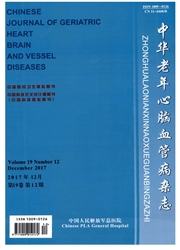

 中文摘要:
中文摘要:
目的分析35例肯尼迪病(Kennedy disease,KD)患者的临床特征及与CAG重复序列数目的关系,加强对KD的认识,避免误诊及延误诊断。方法收集基因确诊的35例肯尼迪病患者的临床资料,包括临床症状和体征,血生化及性激素水平,肌电图,CAG拷贝数,肌萎缩侧索硬化(amyotrophic lateral sclerosis,ALS)评分量表等并进行系统分析。结果 KD患者均为成年发病,平均(40.77±8.57)岁,42.9%有家族史,确诊病程平均(8.32±4.17)年,临床上表现为延髓和脊髓肌肉的萎缩和无力,伴有肢体震颤、口周肌肉跳动,部分可有内分泌功能及代谢紊乱。肌酸激酶、甘油三酯、低密度脂蛋白、卵泡刺激素、泌乳素均明显升高,较健康均值有统计学意义(P值分别为:0.000,0.018,0.000,0.000,0.003);CAG重复序列数目与发病年龄呈负相关(r=-0.549,P=0.001),与病情严重程度(ALS评分)无关(r=0.001,P=0.998);ALS评分与病程呈负相关(r=-0.540,P=0.001)。结论国内外KD患者的临床表型略有差别但临床特征基本一致,CAG重复序列数目决定患者发病年龄,但与病情轻重无关;病情严重程度与病程长短有关。
 英文摘要:
英文摘要:
ObjectiveTo analyze the clinical features of 35 cases of Kennedy's disease and the correlation between clinical features and CAG repeat size to strengthen the understanding of KD and to avoid misdiagnosis and delayed diagnosis.MethodsClinical data, including clinical signs and symptoms,serum lipid, serum sex hormone level, electromyography, the number of CAGs and(amyotrophic lateral sclerosis muscular atrophy,ALS) rating scale were collected from 35 patients genetically diagnosed of Kennedy disease and proceed system analysis.ResultsPatients with KD were adult onset with the average age of(40.77±8.57) years and the average confirmed course were(8.32±4.17) years.Forty-two point nine percent of the patients had family history. Clinical features included medulla oblongata and spinal muscular atrophy and weakness, limbs tremor, perioral muscles twitch and endocrine function and metabolic disorders in some cases. Creatine kinase, triglyceride, low density lipoprotein, follicle estrogen and prolactin were significantly increased compared to healthy adults(P:0.000,0.018,0.000,0.000,0.003). The number of CAG repeat was negatively correlated with the onset age(r=-0.549, P=0.001) but not associated with the illness severity(ALS rating scale)(r=0.001,P=0.998). ALS score was negatively correlated with course of disease(r=-0.540, P=0.001).ConclusionsChinese KD pa-tients share similar clinical phenotypes with those of other races but exhibit slightly different clinical characteristics. The length of the CAG repeat influences age at onset but not the severity of disease. Severity of disease is related to the course of disease.
 同期刊论文项目
同期刊论文项目
 同项目期刊论文
同项目期刊论文
 Absence of Mutations in Exon 6 of the TARDBP Gene in 207 Chinese Patients with Sporadic Amyotrohic L
Absence of Mutations in Exon 6 of the TARDBP Gene in 207 Chinese Patients with Sporadic Amyotrohic L Marine Compound Catunaregin Inhibits Angiogenesis through the Modulation of Phosphorylation of Akt a
Marine Compound Catunaregin Inhibits Angiogenesis through the Modulation of Phosphorylation of Akt a 期刊信息
期刊信息
